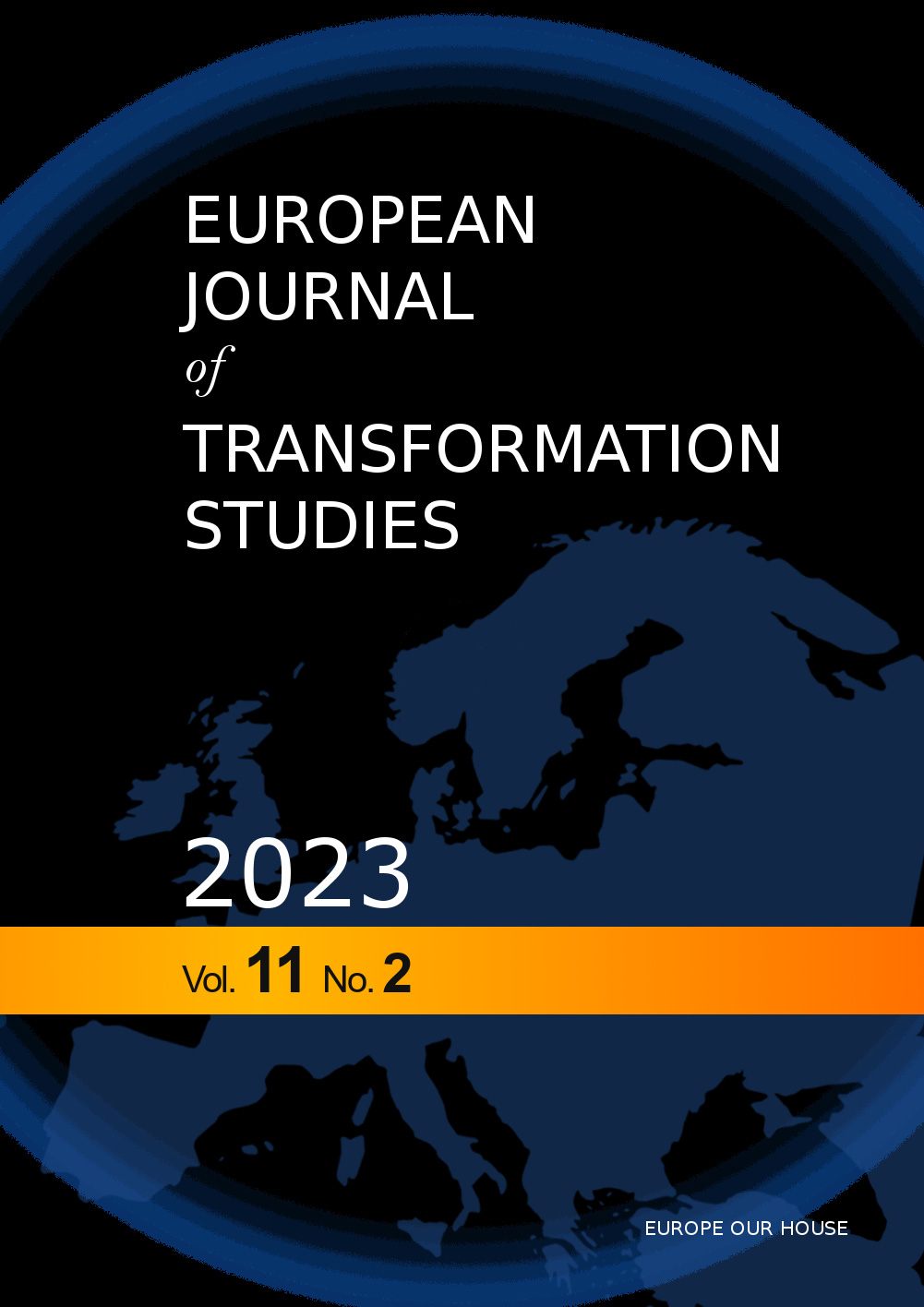The Threatening Shadow of Soviet Archives in Contemporary Georgia
Keywords:
Politics of memory, Soviet archives, Transparency, post-Soviet GeorgiaAbstract
The act of unveiling Soviet archives stood as a key commitment made by successive Georgian governing bodies following the dissolution of the Soviet Union. Nevertheless, the notion of transparency faces significant challenges, leading to ongoing discussions within relevant circles. Despite claims of openness, assessments by researchers suggest that Soviet archives in Georgia remain somewhat restricted. Therefore, the objective of this study is to investigate the distinctive policies governing the management of Soviet archives and their primary influencers in present-day Georgia.
Downloads
References
Akhali Kvira (2018). Public Broadcasting. https://www.youtube.com/watch?v=L3G29HEgg78.
Dundua S. Karaia T. Abashidze Z. (2017). National Narration and Politics of Memory in Post- Socialist Georgia. Slovak Journal of Political Sciences 17 (2): 222–40.
Editorial (2004). How Mikheil Saakashvili raised the yellow card to the Intelligentsia. Dilis Gazeti (morning newspaper) https://for.ge/index.php/view/27898/rogor-uCvena-yviTeli- baraTi-mixeil-saakaSvilma-qarTul-inteligencias.html.
Foote K. (1990). To Remember and Forget: Archives, Memory, and Culture. The American Archivist. Society of American Archivists Stable. Vol. 53, No. 3. pp. 378–392.
Foucault M. (1975). Discipline and Punish. Editions Galimard.
Girchi (2022). History of Vakhtang Gvaramia. Born of Georgia. https://www.youtube.com/ watch?v=PypzrChqGqs.
Graziosi A. (1999). The New Soviet Archival Sources, Cahiers du Monde Russe 40:1–2 pp. 13–64.
Halbwachs, M. (1980). The collective memory. New York: Harper & Row, https://matsne.gov. ge/ka/document/view/22420?publication=20.
Huyssen A. (2000). Present, Past: Media, Politics, and Amnesia. Public Culture 12 (1): pp. 21–26.
Institute for Development of Freedom of Information (2018). Assessment of the Openness of State Archives. http://open-archives.org/uploadimages/countryfiles/Georgia_Nat_Archives_ En_2018.pdf.
Karaia T. (2016). The Politics of Memory in Contemporary Georgia (Rethinking of Soviet Past after Rose Revolution). Tbilisi: Tbilisi State University (PhD Disertation).
Karaia T. (2017). Memory Strategies in Contemporary Georgia. Central European Political Studies. #4 pp.
Kragh M. Hedlund S. (2015): The Russian Review. 373–76.
Mälksoo, M. (2015). Memory must be defended’: Beyond the politics of mnemonical security.
Security Dialogue (Sage) 1–17.
Mickewicz E. (1993). The Commercialization of Scholarship in the Former Soviet Union.. Slavic Review. Vol. 52, No. pp. 90–95.
Miskimmon, A., O'Loughlin, B., & Roselle, L. (2013). Strategic Narratives: Communication Power and the New World Order (1st ed.) Routledge, New York.
Gvadzabia M. (2020). The Supreme Court did not accept the SOV lab case. https://net- gazeti.ge/news/499759/.
Parliament of Georgia (2006). The Law on the National Archival Fund and the National Archives.
Parliament of Georgia (2011). Law of Personal Data Protection. https://matsne.gov.ge/ka/document/view/1561437?publication=25 28/12/2011.
Pell S. (2015). Radicalizing the Politics of the Archive: An Ethnographic Reading of an Activist Archive. Archivaria The Journal of the Association of Canadian Archivists. Pp. 33–57.
Robinson H. (2012), Remembering things differently: museums, libraries and archives as memory institutions and the implications for convergence. Museum Management and Curatorship, Taylor and Francis Group; #4, 27, pp. 413–429.
Saakashviliarchive.info.ge, (2004). President Saakashvili's speech devote to the independen- ce day military parade. Tbilisi, http://saakashviliarchive.info/ge/PressOffice/News/Spee-chesAndStatements?p=2777&i=1.
Sieber S. (2016). The Politics of Archives. Media, Power, and Identity. Philipps-Universität Marburg.
Sontag, S. (2003). Regarding the Pain of Others. New York: Picador.
Wertsch J. Karumidze Z. (2009). Spinning the past: Russian and Georgian accounts of the war of August 2008. Memory Studies. 2(3): pp. 377–391.
Zerubavel Y (2011). From Recovered Roots: Collective Memory and the Making of Israeli National Tradition. In The Collective Memory Reader, by Jeffrey K. Olick, 237-242. New York: Oxford University Press.

 Academic Scientific Journals
Academic Scientific Journals



